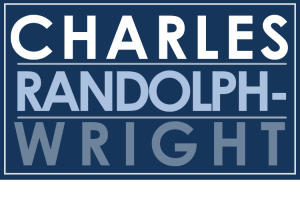Female attorneys going head to head in a heated courtroom battle isn’t something often seen on television.
Now imagine that the two women standing on opposite sides of the case are best friends.
The narrative follows Delilah Connolly, a headstrong, highly principled lawyer who left a demanding white-shoe law firm a decade ago, hanging up her own shingle so she could make raising her kids her #1 priority. Now, she takes on cases the big firms ignore, often going head-to-head with the powerful and privileged as she fights for the disenfranchised.
Craig Wright, who created and serves as Executive Producer on the series, says that in Delilah he and his team, “wanted to make something bigger and broader, and we wanted to ask more questions about where society’s headed, and how Black women and Black Americans are going to continue being a major part of the unfolding of American history.”
Hill admits that she’s thrilled to be portraying, ‘an empowered, strong-minded woman with a strong moral compass.’
“I think she reflects Black women and Black America in ways that we haven’t seen on a consistent basis,” says Hill. She adds, “I think that she’s an accurate reflection of women who are trying to balance their lives, as well as fight for things that are meaningful to them.”
The fact that her character is an African-American female does complicate her journey says Hill. “Of course, there are gonna be some issues around discrimination because she’s a woman and because she’s Black.” But, she believes, “I do think that there is probably a little bit more to be said [about] being Black and a woman; you have to kind of push a little bit harder because of those things. But I see in Delilah something that is heroic [in the way she handles things.].
Craig Wright says that the character is passionate about addressing injustice, and that, ‘her desire for justice and for fairness and for truth transcends all boundaries.’
It’s this type of passion that drew Jones was drawn to participate in the series as Tamara, she says. “I typically migrate towards dynamic female characters – badasses. Clearly I love that.”
She goes on to explain one of the predicaments of her character that viewers need to understand, saying, “There’s a thing that is called the token Negro. And [my character] is in a large firm and she doesn’t realize that she’s a token Negro, which is — woo, let’s see how I can define it — black person that has kind of been given a special place above others. But sometimes you don’t know it until you know it. And then you realize that her rose colored glasses are off, basically. So, things are not what she thought that they were.”
This is very important to the narrative, says Charles Randolph Wright, an Executive Producer on the series. “That’s the thing that’s so amazing about these women – that they exist everywhere, that they deal with these same issues, but they aren’t the ones that you [typically] see portrayed [on television], and that’s what is so thrilling about this show.”
It was Cheryl Dunye, the director of the first two episodes who pushed to set a certain tone, says Craig Wright. “She wanted to make sure that the truth of the situation was going to be seen, and that was that Black women like Delilah and Tamara do not exist in a vacuum. They are part of communities. They’re part of neighborhoods. They’re part of larger extended families. So, we always were trying to find little ways to inform the audience that these women had these connections.”
He says that one of the great gifts of so much content right now is the ability to bring this kind of specificity to the screen, and he firmly believes that, “The need for women like Delilah in America is always going to be there.”
‘Delilah’ airs Tuesdays at 9e/p on OWN.




Leave a Reply
Want to join the discussion?Feel free to contribute!